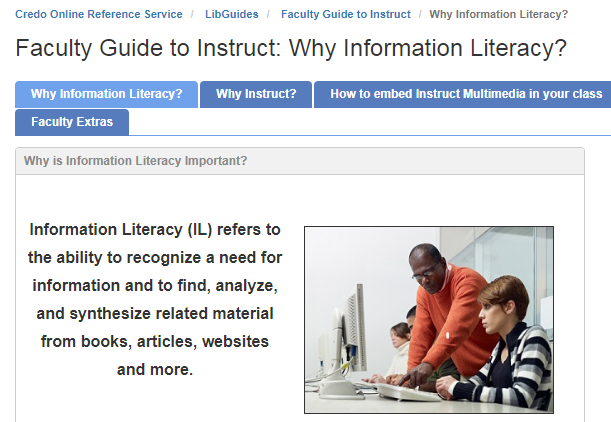By Beth Black and Raymond Pun
Research question formation and background research are important parts of the process that set students up for success in seeing their assignments to completion. Credo Online Reference Service is a good tool for giving students practice with these fundamental steps during library instruction sessions. This 2-part series will describe an FYE workshop Beth designed and offered at Ohio State University for honors students. It can be easily adapted to class visits to courses in which students will have a research assignment. The workshop is part of the common read program, and is titled “What’s in a Question? Research Questions and [common read title]”. Make sure students have access to computers or tablets so they can use Credo during the session.

/Images/mindmap-2123973_640.jpg)
/Images/AfricanAmericanStudies.jpg)

/Images/literature-3060241_640.jpg)
/Images/Grace_Liu.jpg)

/Images/ILeducation.jpg)
/Images/news-644847_640.jpg)

